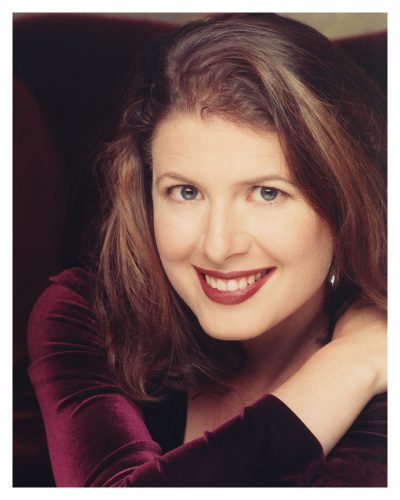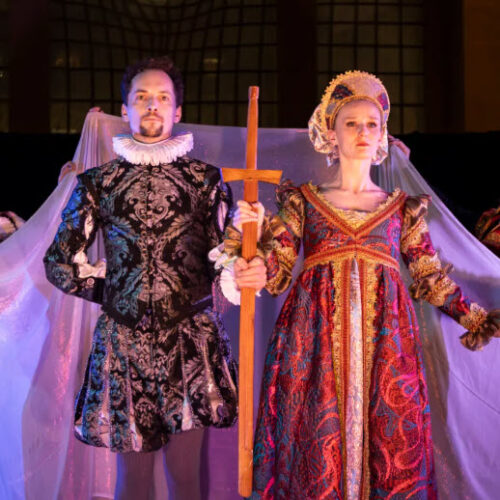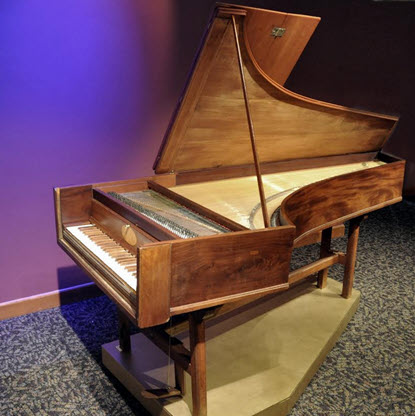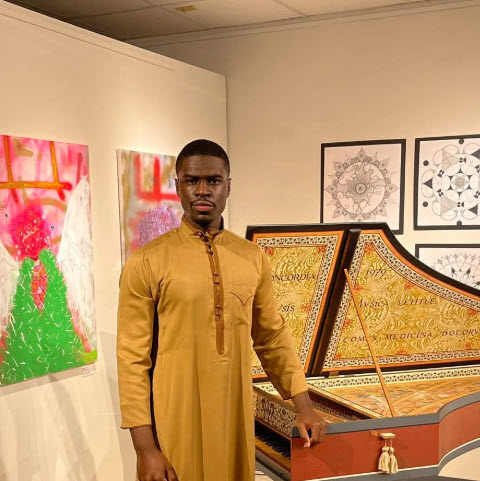by Meredith Hall
Published May 1, 2019
From the May 2019 issue of EMAg
The important thing about early music is that humans do it. It is true that it is beautiful and can soothe the soul, ravish the senses, engage the intellect, and arouse the passions. But the important thing about early music is that humans do it.”
—Margaret Wise Brown, The Important Book (Not really, but in the spirit of…)
It’s been a week, and I am still smiling at the memory. That incandescent young man, tenor Karim Sulayman, bounding up to the stage with Roberto Benigni-esque fervor to claim his Grammy for EARLY MUSIC! Along with Sulayman, conductor Jeannette Sorrell, producer Erica Brenner, and the hardworking, humble, brilliant musicians of Apollo’s Fire brought it home for their winning recording, Songs of Orpheus, with a shout-out to “the grandfathers of vocal music.” An unexpected joy, an indication that the world is a more surprising place than the current news cycle suggests. So today I took some time to listen again to their beautiful “little album that could.”
I pretty much stopped listening to early music for pleasure or solace more than a decade ago. It just made it too difficult to get things done. I can half-listen to talk radio while steering a path through the routine chaos of my life, but music is too interesting; I just stop dead in my tracks and attend to the more important task of appreciating it. That was fine when it was just me and hubby. Enter two kids, a bungalow in the ’burbs, and caregiving for a beloved family member. All gifts beyond measure, but the responsibilities just kept ramping up. No time to listen!
Then tragedy struck Toronto for the third time in the space of six months. I had grown depressingly accustomed to waking up to news of yet another murder in my city, but the unmasking of a serial-killing mall Santa was followed by a deranged misogynist in a van mowing down female pedestrians, and then by a madman with a gun enacting a video-game-style killing spree in a favorite strip of family restaurants.
I happened to be alone without cell service or wireless when I heard of that last horror. Luckily, I had a small collection of CDs on hand. Soul-sick, I reached out—and discovered a friend.
Alison Melville played her magic flute and led me out of the maze of despair. She danced her sweet tones through 18th-century Scottish melodies both graceful and solemn, coaxing like an expert crisis negotiator. “It’s OK,” she seemed to say. “Come out. Humanity is good. Look, we made something beautiful for you.” I held the CD booklet in my lap, and Alison’s sparkling, pixie eyes kept me company. Finally, the cheeky title of her CD, She’s Sweetest When She’s Naked, registered and brought me the purest image of unselfconscious delight—a laughing, naked baby. What things of beauty we humans can create when we give our hearts and minds to our craft. What gifts of healing.
That’s what happens when you release your artistic passion into the world. You pour your love and labor into a project. Your unique lineage, all the people or experiences that made you, are present in your art, and they resonate in the world in ways you cannot predict.
Add to that charisma, that surge of individuality that creates a heightened awareness around the music. I discovered in childhood that I could sometimes invoke it in performance—if I loved my repertoire and knew it inside-out. Some- thing would just click, and my adrenaline would flow, elevating me, making me more effective and spontaneous, grabbing the attention of the audience. As I sang and they listened with growing intensity, the atmosphere would deepen, would become charged with emotion. I still reach for this wild magic in performance to this day.
There is nothing “historically correct” about it, but I am sure musicians have been reaching for it since time imme- morial. It can be as subtle as a sunshiny groove that softens the eyes and loosens the heart, producing a few small frissons or a tender exchange of expressions. Or it can rise to a wild, shamanic, spine-tingling conjuration of the divine. Music and words provide the entry point, the incantation, but when the charisma is really flowing, something sacred enters the room.
So, what does this all mean in terms of performing early music? I guess I’m trying to say that to counteract the ugliness and violence, it’s vital that we carry on preserving and pondering the music of the past. That we give it our full passion and charisma and breathe life into it. Because making beautiful things is the best of what humans do.
 Soprano Meredith Hall is a proud Newfoundlander who loves Handel, folk music, and storytelling with equal ardor. She has performed with many prominent early-music ensembles in Europe and North America and frequently collaborates with Apollo’s Fire and Ensemble La Nef of Montreal.
Soprano Meredith Hall is a proud Newfoundlander who loves Handel, folk music, and storytelling with equal ardor. She has performed with many prominent early-music ensembles in Europe and North America and frequently collaborates with Apollo’s Fire and Ensemble La Nef of Montreal.




